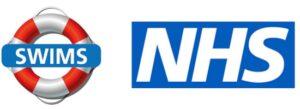Self Issue Equipment
SIP2 equipment – information for NHS trust libraries and NHS IT departments
Document created and maintained by Health Education England (HEE) with input from Axiell UK.
Last updated Jenny Toller and Lucy Farnsworth 30 March 2021
Background information
Kiosks
A library self-service circulation terminal, also known as a self-issue kiosk, or SelfCheck, is used by library users to issue library books and other library materials to themselves via an interactive screen. Library users can sometimes also renew and return items via the kiosk and carry out other tasks relating to the items they loan from the library. The kiosk replaces or complements library staff mediated issuing and returning and allows for a more flexible experience of using the library.
SIP2
The kiosk interacts real-time with the library management system (LMS). The LMS is the system which the library uses to record loans of library books and other items. This interaction is done via a protocol called SIP2 (Standard Interchange Protocol). Other equipment requiring a SIP2 connection are smart gates and staff transaction desk pads – see below. More information on SIP2 is available at https://en.wikipedia.org/wiki/Standard_Interchange_Protocol.
RFID
In some libraries it is necessary for the library user to open the front page of the book so that the kiosk can read the unique barcode in the book. Increasingly libraries are moving to RFID meaning that issuing is done by the book being placed in proximity to the kiosk, with no need to open the front cover. More information on RFID is available at https://en.wikipedia.org/wiki/Radio-frequency_identification
Other equipment
Libraries also sometimes use other equipment which communicates with the LMS system via SIP2. These include security gates which are placed at the library exit. These gates record the items which are taken out of the library, i.e. are taken through the gates. This requires the implementation of RFID. Library staff can run a report to establish which items have been taken out without being issued on the LMS.
Other equipment includes pads which are used by library staff at the issue desk to issue items. These also require the implementation of RFID.
The LMS
The LMS is shared by NHS trust libraries in the South West, Thames Valley and Wessex. It is supplied and hosted by Infor UK Ltd. HEE funds the provision of this system. The library staff interface of this system is called V-smart. The system is referred to as ‘SWIMS’ (South and West Information Management System) by library staff.
Stunnel
(Pronounced ‘ess tunnel’)
The LMS supplier Infor uses Stunnel to make the connection. See https://en.wikipedia.org/wiki/Stunnel for more information. Stunnel is an application commonly used for this purpose.
Stunnel software is used to form a secure tunnel between the LMS and the kiosk and to encrypt the borrower’s data and details of their circulation transactions.
Information about the LMS and data protection generally is available from trust library managers.
Responsibilities
Purchasing and maintenance of the kiosk
The trust pays for the kiosk and other equipment. This may be an outright purchase or a lease. The trust is responsible for any maintenance contracts with the kiosk supplier. Any queries arising from the purchase and maintenance of the hardware should be handled between the trust and the kiosk supplier.
The hardware supplier may in some cases make an arrangement with another company with regards to the kiosk operating software. In this case the hardware supplier should guide the trust in how to liaise regarding software issues.
The hardware supplier is responsible for patching the kiosk, e.g. carrying out Windows updates.
Connectivity to the LMS
Stunnel software needs to be installed onto the kiosk computer. Please see the information below about installing Stunnel. This may be carried out by the library staff or the IT department, or it may be pre-installed by the kiosk supplier.
HEE pays for the connection to be made between the equipment and the LMS. Axiell will create an invoice that will be sent to NHSE. This constitutes normally 0.5 professional service days.
